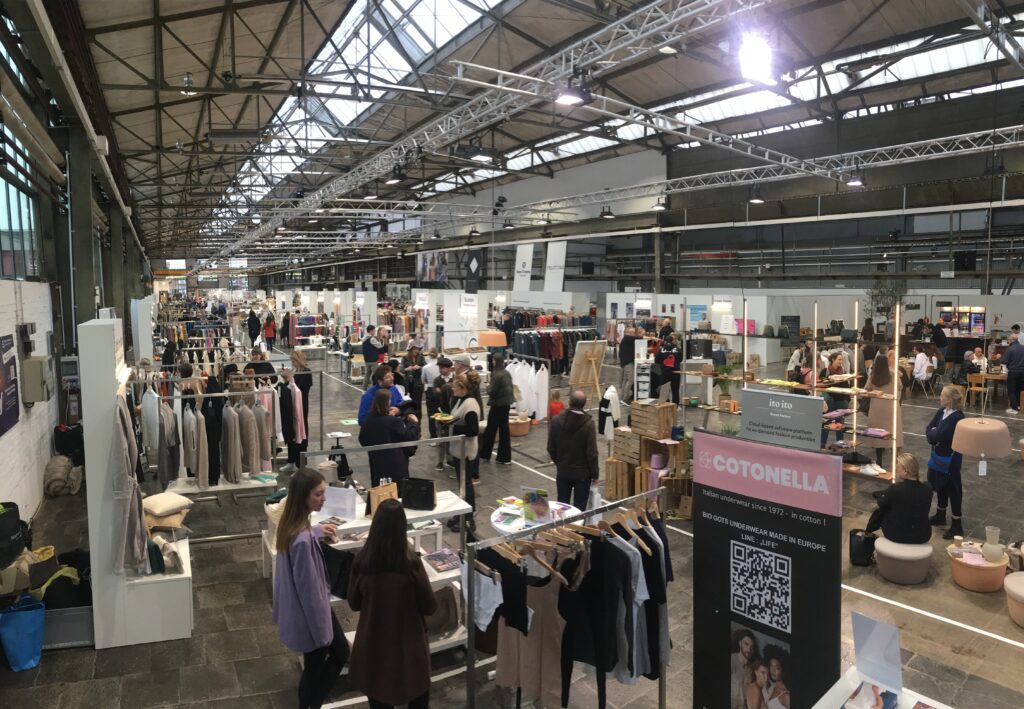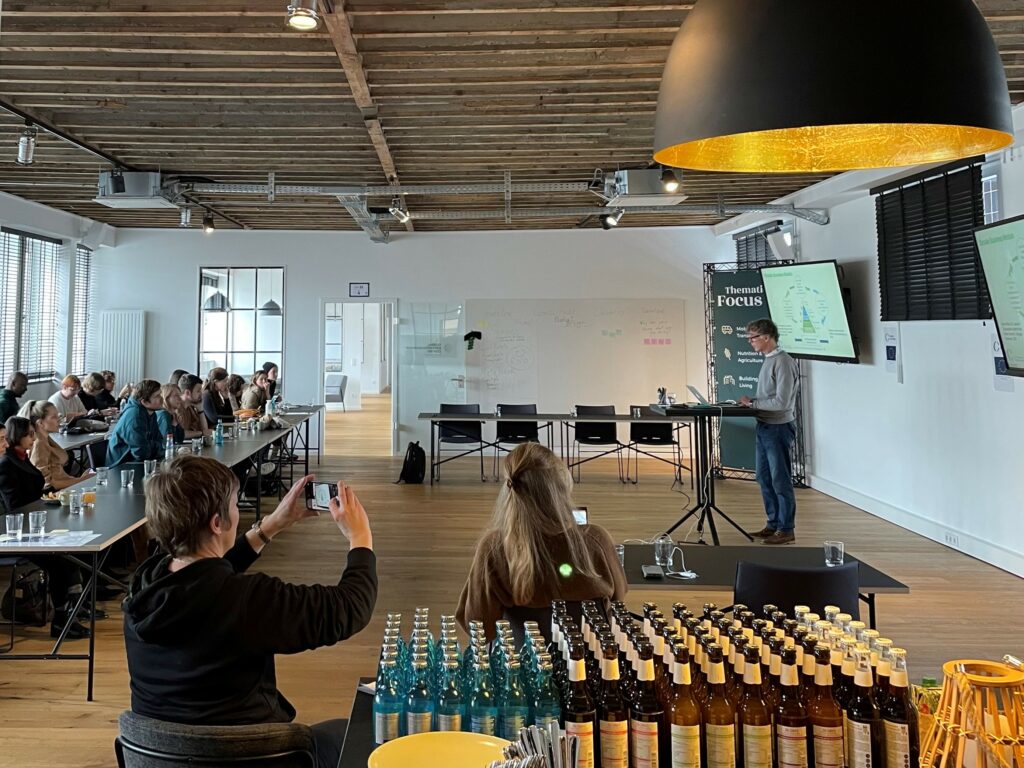A Weekend at the Neonyt Fashion Show
On the last weekend of January 2023, the international teams of the Fashion For Change Growth Programme were invited to a study trip to the Neonyt Sustainable Fashion fair in Düsseldorf. The international Neonyt fair is one of the most important events of the European sustainable fashion industry and always one-step-ahead on innovation and sustainable trends. Among the eleven teams who made their way to Germany, two of them – British Alpaca and Melina Bucher, had a proper exhibition booth this year.

The first day of the study trip was all about discovering Neonyt and its exhibitors, all of them frontrunners and some well-known fashion brands already. It was rounded up in the evening by a joint debriefing lead by EKA – the Estonian Academy of Arts. Everyone enjoyed the opportunity to network and learn from each other’s best practice and experience.
On the second day, the teams gathered for a workshop about circularity, organised by Fashion For Change consortium member Ecopreneur.eu – the European Sustainable Business Federation – in the premises of the Global Entrepreneurship Centre (GEC) right on the fairground. Inspired by personal encounters with exhibitors, a presentation by Ecopreneur.eu about circular business models and an update by the GEC about venture catalyst programmes, the participants dived into discussions moderated by mentors from the project team.

It showed that startups aiming to become successful as sustainable frontrunners are facing a dilemma: How to develop and run a circular fashion business with sustainable products and services in a linear economy? How can first movers find a specific angle to introduce a ground-braking solution and stand out from the crowd to attract suppliers, customers and investors without losing breath? Talking from experience, whatever the angle, it usually takes a long breath to push through.
Other points of discussion:
- the need to think about circularity and beyond a product’s « end of life » at an early design stage;
- the need to develop – and invest in – digital skills to get fit for the „twin transition“ towards digital and circular business models;
- the need to know what’s at the „regulatory horizon“ to align strategy with upcoming EU and national laws; and – last but not least :
- how to keep the focus on attracting investors to scale up, rather than getting bogged down in the details of managing a business?
Until the final pitching workshop in March, the startup teams will continue speaking to their mentors to wrap their minds around these and other important questions.